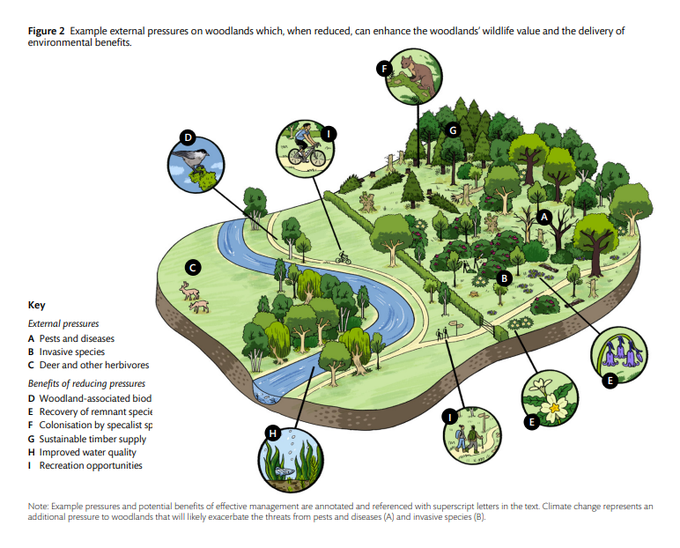The UK is committed to protecting, expanding, and conserving woodlands to secure a wide range of environmental and social benefits. Well-managed woodlands of any type can enhance biodiversity and support many protected species. Additionally, woodlands provide essential benefits to people through regulating and provisioning ecosystem services such as timber and wood products, climate change mitigation, water quality improvements, and recreation.
However, many woodlands have fallen into unfavourable or intermediate ecological conditions due to a lack of suitable management or external pressures such as herbivore damage, invasive species, and pests and diseases (National Forest Inventory, 2020). The type, location, and management of woodland elements within a landscape and the potential network they form determine the extent to which they support native biodiversity and contribute to the delivery of ecosystem services.
Lawton et al. (2010) identified four key attributes for managing, restoring, and creating habitats across a landscape to benefit biodiversity: better, bigger, more, and joined. Read More
Full Report: https://cdn.forestresearch.gov.uk/2025/01/FRRN046.pdf



